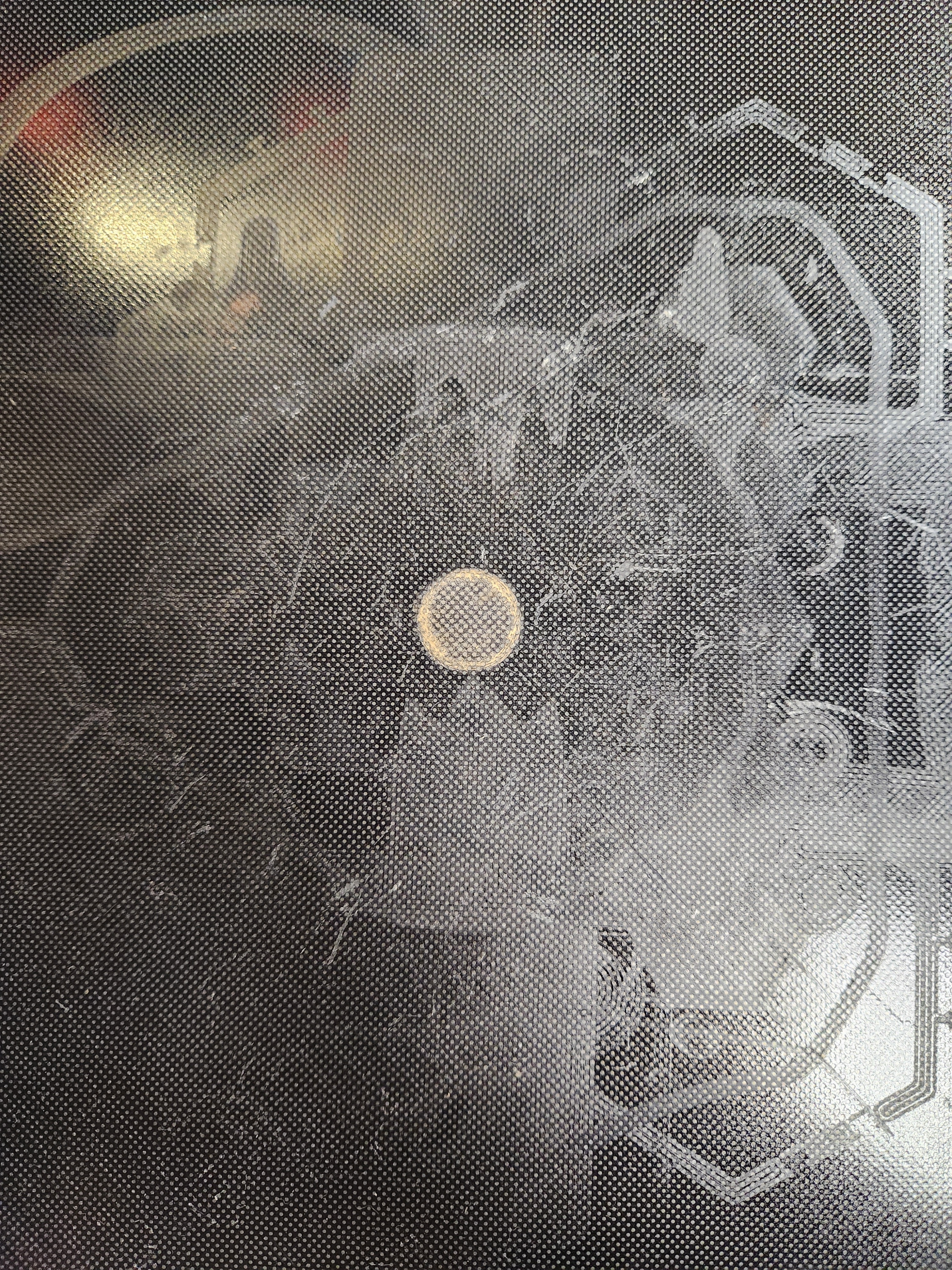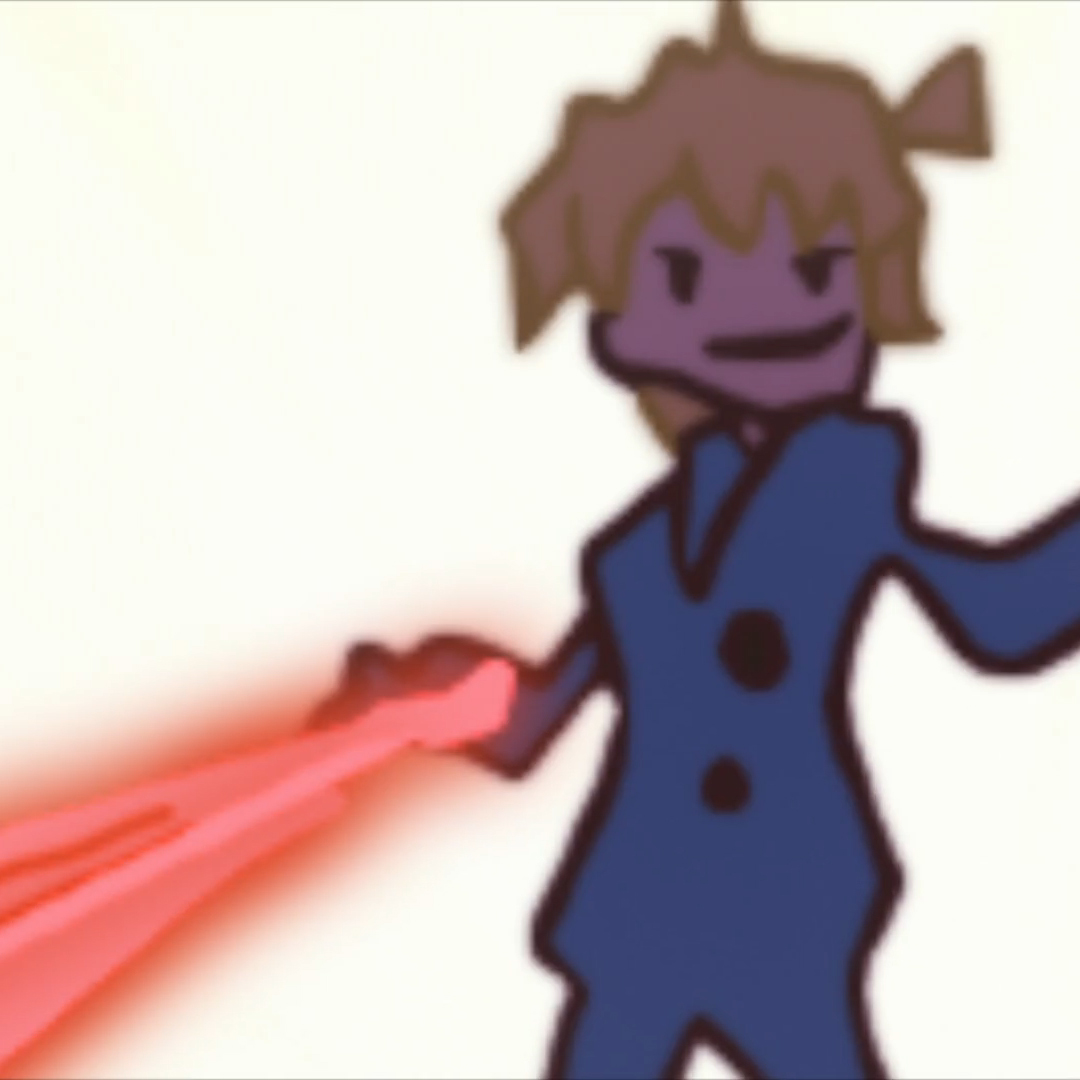
Rip
Thankfully, It’s okay. Ish.
My prints want to unstick a bit there, but overall it’s still working! The poor thing.
I don’t have this problem. I have a precision piezo Orion probe. My probe is my nozzle.
How do you handle residual filament on the nozzle from previous prints? Or if you heat it up to get to nozzle itself to touch the bed, do you get dabs of plastic distributed around your bed?
My probe hits my z endstop, so similar idea. I preheat my probe and manually wipe it before I home. Any ooze doesn’t really make a difference in first layer. At some point I’ll print a purge bucket and nozzle brush…
My endstop is just a metal rod, but since it’s cold filament doesn’t stick to it. If I were probing my bed I would probably want a hot nozzle and cold bed.
Cold bed can be a problem sometimes due to the bed warping with temperature. I myself always probe with the bed at printing temperature for this reason
I preheat to 170°c. That allows the filament to be soft enough to be cleaned (with tweezers or a brush, it peels off in one piece most of the time) without oozing. Then I do a 10mm retract before probing.
That’s smart!
Did that this morning. Except for I didn’t hit save and restart after setting new offset in klipper. But I just got a small scratch. I got lucky it wasn’t too bad. Lol
I have a BL Touch. I set my start GCode to not probe a grid for every print to save time. But if I do remove the nozzle or the glass bed, I have to run the grid again and store settings, otherwise I’ll have issues on the first layer.
One thing I made sure of with my printer was that all my nozzles are the same length so that it’s one less thing I have to worry about with my printer
Looks like my own Anycubic’s base ❤
Ouch
Switched over to Revo nozzles on all my printers. Didn’t have to adjust my z-offset since then, neither did I have any issues with print quality.
They are pricy but I prefer a stress-free solution over a cheaper one.
How does revo nozzle prevent from hitting into print bed?
They’ll all the same length when properly installed
btw, what you’re seeing there is actually brass shavings. That glass bed is like sandpaper to your nozzle. I’d closely inspect it because you’ve likely rolled the brass over the tip by doing this.
Seriously, look at it closer and you’ll see bits of brass. That’s why the color is the way it is.
Additionally – you shouldn’t have this problem so long as you’ve actually rebuilt your hot end correctly. Nozzles have a standard (in the case of the Ender it’s a MK8) and generally even the cheap chinese ones follow that standard very well.
Thanks for the detail!
Fortunately, in this case I was using a brand new, low-quality nozzle I don’t really care about.
After this, I did indeed notice that I hadn’t tightened the nozzle fully tight and I had some mild “drizzle” escaping down the side.
Since then, I’ve
- removed the nozzle
- cleaned the gunk out
- put the nozzle back in
- leveled the bed
- rechecked my z-offset
and… It’s printing fine again.
Even the nozzle was alright… entirely due to dumb luck. 🤦
Yeah, the nozzles can survive a little bit of scrape-off like that, but it can change the orifice geometry so just be aware. What model/make of machine/hot end do you have, if you don’t mind my asking? The cheap Ender-style PTFE-lined hot ends are pretty intolerant to just nozzle swaps, and if you have one of those, I have some videos I recommend watching so you know how to rebuild it properly should you ever need to again.







